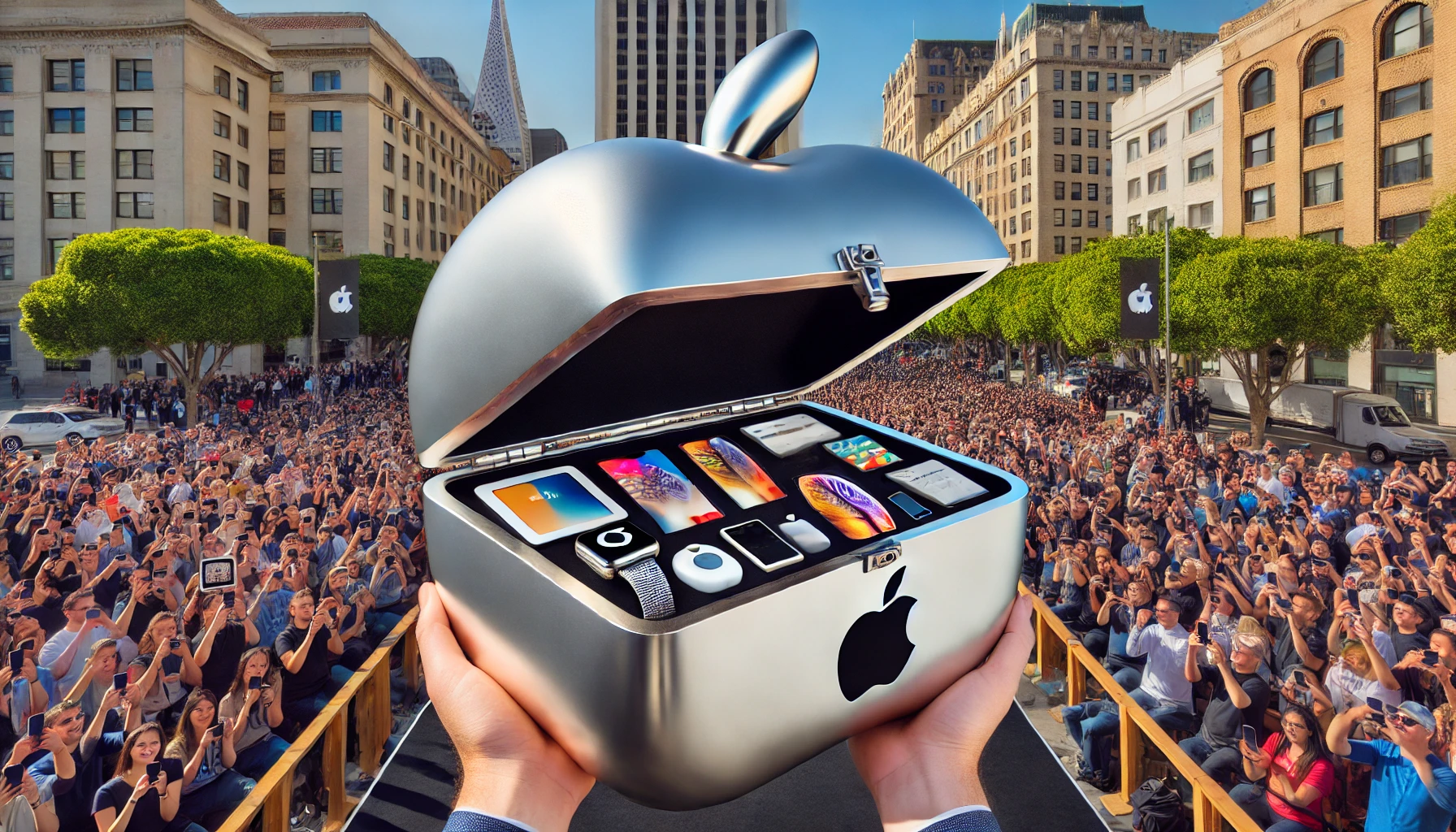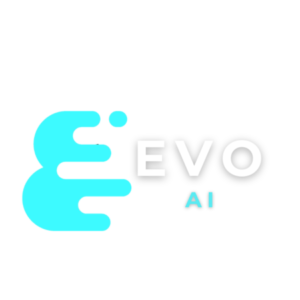
Apple introduces a range of new products and features at WWDC24
Intro
The following is an executive summary of the latest previews for various Apple operating systems and features as showcased at WWDC24, including macOS Sequoia, iPadOS 18, iOS 18, Apple Intelligence, visionOS 2, and watchOS. Each section will cover the product description, features, benefits, technical details, and other relevant information.
Product Description
Apple has introduced significant updates across its platforms:
- macOS Sequoia: Enhanced productivity, new Apple Intelligence, and improved continuity features.
- iPadOS 18: New multitasking abilities, enhanced Apple Pencil support.
- iOS 18: Advanced customization, deeper Siri integration.
- Apple Intelligence: Personalized AI across devices.
- visionOS 2: Enhanced spatial computing.
- watchOS: Improved health and fitness features.
Features
- macOS Sequoia: iPhone mirroring, advanced window tiling, new Safari features, and improved messaging.
- iPadOS 18: Desktop-class apps, new multitasking, and refined Apple Pencil capabilities.
- iOS 18: Widgets on the lock screen, more intuitive Siri, and improved privacy settings.
- Apple Intelligence: Context-aware recommendations, enhanced Siri capabilities.
- visionOS 2: Seamless spatial computing, improved app interactions.
- watchOS: Advanced health tracking, personalized fitness coaching.
Benefits
- macOS Sequoia: Enhanced productivity, seamless iPhone integration, advanced privacy.
- iPadOS 18: Greater productivity and creativity, enhanced user experience.
- iOS 18: Improved user customization, enhanced privacy, and smarter Siri.
- Apple Intelligence: Personalized and efficient AI-driven experiences.
- visionOS 2: More immersive and interactive spatial experiences.
- watchOS: Comprehensive health and fitness tracking, improved user engagement.
Technical Details
macOS Sequoia
System Integration:
- Apple Silicon Optimization: Takes advantage of the unified memory architecture and neural engine in Apple Silicon for improved performance.
- Continuity Features: Enhances integration with iPhone, allowing seamless use as a webcam and improved Handoff functionality.
- Window Management: New tiling options and an updated Mission Control streamline multitasking.
Security Enhancements:
- Lockdown Mode: Offers high security for users susceptible to sophisticated cyber attacks.
- Enhanced Privacy Settings: Fine-tuned app permissions and transparent data usage indicators.
iPadOS 18
Enhanced Apple Pencil Support:
- Smart Script: Converts handwritten notes into text using on-device machine learning.
- Live Audio Transcription: Automatically transcribes audio recordings within Notes.
Multitasking Enhancements:
- New Multitasking Menu: Simplified interface for split view and slide over.
- Customizable Widgets and Apps Layout: Widgets and apps can be placed and resized freely on the home screen.
Performance and Gaming:
- Game Mode: Optimizes system resources for gaming, reducing background activity and improving frame rates.
- Math Notes in Calculator: Supports complex equations and graph plotting with Apple Pencil.
iOS 18
User Customization:
- Lock Screen Widgets: Customizable lock screen widgets for quick access to information.
- Enhanced Siri: Deeper integration with apps and personalized suggestions based on user patterns.
Security Features:
- App Locking and Hiding: Apps can be locked with Face ID or Touch ID and hidden from view.
- Improved Privacy Settings: Greater control over app data access, including contact sharing.
Health and Fitness:
- Advanced Health Tracking: Enhanced metrics and trends analysis with integration of third-party health devices.
Apple Intelligence
AI Integration:
- Context-Aware Siri: Uses on-device AI for accurate, context-based responses.
- Personalized Recommendations: AI-driven suggestions based on user behavior across macOS, iPadOS, and iOS.
OpenAI Integration:
- ChatGPT Integration: Siri and Writing Tools can access ChatGPT for expertise and creative content generation, with user control over information sharing.
Cross-Device Learning:
- Unified Learning Models: Consistent experience with shared data across devices.
visionOS 2
Spatial Computing:
- Enhanced Gestures and Eye-Tracking: Improved interaction with spatial computing apps using Vision Pro hardware.
- Developer Tools: Advanced tools for creating immersive spatial applications.
watchOS
Health and Fitness Tracking:
- New Workout Types: Expanded options for various sports and activities.
- Personalized Coaching: AI-driven fitness and health recommendations tailored to the user.
User Interface Enhancements:
- Redesigned Control Center: Easier access to functions with customizable layouts.
- Advanced Notifications: Interactive notifications with actionable options directly from the watch face.
Summary
Apple’s latest OS updates introduce a range of innovative features designed to enhance productivity, creativity, and user experience across its ecosystem. With macOS Sequoia’s advanced continuity features, iPadOS 18’s powerful multitasking, iOS 18’s deep customization, and the personalized power of Apple Intelligence, users can expect a seamless and integrated experience. visionOS 2 and watchOS updates further expand Apple’s leadership in spatial computing and health tracking, respectively, reinforcing Apple’s commitment to delivering cutting-edge technology across its devices.
Other AI News
-
Rebellions and Sapeon Merge to Challenge Nvidia in AI Chip Market
Rebellions Inc. and Sapeon Korea Inc., two leading South Korean AI chip designers, have announced a merger aimed at creating a formidable competitor to global players like Nvidia. The merger is driven by parent company SK Telecom Co. and is expected to finalize in the third quarter of 2024. The combined entity will leverage the technological advancements of Rebellions’ ATOM chip and Sapeon’s X330 AI chip, aiming to establish a significant presence in the global AI semiconductor market. The strategic consolidation reflects a proactive stance to harness synergies and accelerate innovation, positioning South Korea as a notable player in AI technology.
Rebellions, co-founded by CEO Park Sung-hyun, and valued at approximately $639 million after a successful Series B funding, will absorb Sapeon. Sapeon, valued at over $500 million and backed by a consortium including SK Telecom and SK hynix, will see its CEO, Ryu Soo-jung, step down, with Rebellions taking the lead in managing the new entity. This merger underscores South Korea’s ambition to boost its share in the logic processor market, with the government targeting a ten percent share by 2030. The combined strengths of these companies are expected to propel South Korea’s AI industry into a new era of competitiveness and growth.
-
Linq Raises $6.6M to Revolutionize Financial Research with AI
Linq, a Boston-based AI startup, has secured $6.6 million in funding to advance its mission of streamlining financial research for analysts. The funding round was led by InterVest and Atinum, with contributions from TechStars, Kakao Ventures, Smilegate Investment, and Yellowdog. Linq aims to use AI to automate and enhance various aspects of financial analysis, including data collection, report summarization, and financial model building. This technology is designed to save analysts significant time, allowing them to focus on more strategic tasks and make more informed investment decisions.
Founded by MIT alumni and winners of Samsung’s accelerator program, Linq is positioning itself against industry giants like Bloomberg and S&P. Despite the competition, Linq offers unique end-to-end services that differentiate it from its rivals. The startup’s AI agent leverages domain-specific search capabilities and large language models to handle tasks that general AI tools like ChatGPT cannot match. With plans to expand into the Americas, Asia, and the Middle East, Linq is poised to make a significant impact on the financial industry by providing more efficient and effective research solutions.
-
Spawning Champions Ethical AI Training Data Practices
Spawning, a startup focused on creating ethical AI training datasets, is spearheading efforts to ensure AI models are trained on data that respects consent, privacy, and data ownership. Founded by Jordan Meyer and Mathew Dryhurst, Spawning aims to address the significant ethical concerns surrounding AI training data by developing tools that help creators maintain control over their works. Their latest initiative, Source.Plus, curates datasets from nearly 40 million public domain images and Creative Commons CC0 licensed images, ensuring that the data used for AI training does not infringe on creators’ rights.
Spawning’s tools include the “Do Not Train” registry, allowing artists to opt out of having their work used in AI training. This approach promotes transparency and fairness in AI development, setting a precedent for more responsible AI systems. The company’s efforts highlight the growing need for ethical practices in the AI industry, aiming to balance innovation with respect for individual rights. By prioritizing ethically sourced data, Spawning is paving the way for more trustworthy and equitable AI technologies.
-
Particle Secures $10.9M to Expand AI News Reader with New Publishing Partners
Particle, an AI-driven news reader startup, has recently secured $10.9 million in Series A funding led by Lightspeed Venture Partners, with additional investment from Axel Springer. This funding aims to enhance Particle’s AI capabilities and broaden its content offerings by expanding its network of publishing partners, including a notable collaboration with Reuters. Particle’s app uses AI to summarize news from various publishers, offering users a multi-perspective view of stories to avoid “filter bubbles” and ensure a well-rounded news consumption experience.
The startup, founded by former Twitter engineers, is developing a new business model tailored for the AI era, exploring options like revenue sharing and advertising. Currently in private beta testing on iOS, with plans to support web and Android in the future, Particle is inviting publishers and journalists to collaborate on its development. The app’s focus on delivering multi-source news summaries aims to provide value beyond typical AI-generated content, enhancing user engagement and satisfaction.
-
Mistral AI Raises $640M to Challenge AI Industry Giants
Mistral AI, a Paris-based artificial intelligence startup, has raised $640 million in its Series B funding round, elevating its valuation to $6 billion. The funding round was led by General Catalyst with participation from prominent investors like Andreessen Horowitz, BNP Paribas, Nvidia, and Samsung. Founded in April 2023 by former Google and Facebook employees, Mistral AI has rapidly positioned itself as a major player in the global AI landscape. The company focuses on developing both open-source and proprietary AI models, including its recent release, Codestral, a 22-billion-parameter language model capable of understanding over 80 programming languages.
The substantial funding will support Mistral AI’s ambitious growth plans, including expanding its research and development capabilities. A significant aspect of its strategy involves a partnership with Microsoft, which provides access to Azure’s supercomputing resources for training and deploying its AI models. This collaboration underscores Mistral’s commitment to leveraging cutting-edge infrastructure to advance its AI technologies. CEO Arthur Mensch has highlighted the company’s disruptive impact on the AI market, challenging established giants like OpenAI and Meta with innovative and efficient AI solutions.
-
Elon Musk Threatens Apple Device Ban Over ChatGPT Integration
Elon Musk has threatened to ban Apple devices from his companies, including Tesla and SpaceX, over Apple’s recent integration of OpenAI’s ChatGPT technology into its operating systems, announced at the WWDC 2024. Musk expressed his concerns on his social media platform, X, calling the integration a “security violation” and indicating that employees and visitors would need to check their Apple devices at the door, where they would be stored in Faraday cages to prevent any potential data breaches.
Musk’s reaction is partly driven by competitive tensions, as he leads xAI, a direct competitor to OpenAI. He criticized Apple for not developing its own AI technology and doubted Apple’s ability to protect user privacy with the new integration. Apple’s integration aims to offer users enhanced AI capabilities while maintaining privacy, with user permissions required for activation. Despite Musk’s concerns, Apple plans to continue incorporating third-party AI providers to create a diverse AI ecosystem for iOS users.
-
Apple to Partner with Google for Future Gemini AI Integration
Apple has confirmed its plans to collaborate with Google on integrating Google’s Gemini AI technology into its future projects. Announced during WWDC 2024, this partnership aims to enhance Apple’s AI capabilities by leveraging Google’s advanced AI models. Craig Federighi, Apple’s Senior Vice President of Software Engineering, highlighted that this collaboration will provide users with enhanced AI features while maintaining strong privacy and security standards. This strategic move is part of Apple’s broader plan to incorporate third-party AI technologies to diversify and improve user experiences.
-
Databricks Enhances Mosaic AI to Empower Enterprise AI Development
Databricks has expanded its Mosaic AI platform to help enterprises build and deploy large language models (LLMs). This move comes a year after Databricks acquired MosaicML for $1.3 billion, rebranding it as Mosaic AI. The platform now plays a crucial role in Databricks’ AI solutions, providing tools that enable companies to develop custom AI models tailored to their specific needs. At the Data + AI Summit, Databricks introduced several new features for Mosaic AI, aimed at enhancing its capabilities and making it easier for businesses to implement and manage LLMs.
The new features of Mosaic AI are designed to streamline the AI development process, allowing enterprises to build, train, and deploy their models more efficiently. This includes leveraging Databricks’ existing infrastructure to offer scalable and cost-effective solutions for large-scale AI projects. CEO Ali Ghodsi emphasized that these enhancements will help organizations harness the power of AI more effectively, providing them with the tools needed to stay competitive in a rapidly evolving technological landscape.
-
Amazon Commits $230 Million to Boost Generative AI Startups
Amazon has announced a $230 million commitment to support generative AI startups through its Amazon Web Services (AWS) platform. This initiative aims to accelerate the creation and development of generative AI applications by providing early-stage startups with AWS credits, mentorship, and educational resources. The funding will help these startups access computing power, various AI models, and infrastructure essential for building and scaling their AI solutions. Part of the commitment includes support for the AWS Generative AI Accelerator program, which will select 80 startups globally, offering them up to $1 million each in AWS credits.
The AWS Generative AI Accelerator program is designed to help startups tackle complex challenges across various industries, such as financial services, healthcare, media, and climate change. Participants will receive guidance on machine learning performance enhancement, stack optimization, and go-to-market strategies, along with access to industry experts and technical sessions from partners like NVIDIA. This initiative is part of Amazon’s broader strategy to maintain its leadership in the AI and cloud services market, ensuring that innovative startups have the resources to succeed and scale effectively.
-
Picsart Teams Up with Getty Images for Custom AI Model Development
Picsart, a prominent photo-editing startup backed by SoftBank, has announced a partnership with Getty Images to develop a custom AI model. This collaboration aims to bring responsible and commercially-safe AI-generated imagery to Picsart’s 150 million users, including creators, marketers, and small businesses. The custom model will be trained exclusively on Getty Images’ licensed creative content, ensuring high-quality and legally compliant AI imagery. This initiative will allow users to generate unique images with commercial rights directly within the Picsart platform, enhancing their creative projects with over 3,000 editing tools available on the platform.
The partnership emphasizes the creation of AI tools that meet the demands of modern content creation, offering 24/7 content generation capabilities. Hovhannes Avoyan, CEO and Founder of Picsart, highlighted that integrating Getty Images’ vast creative library will empower marketers and creators to meet the constant demands for new content without leaving the Picsart platform. Grant Farhall, Chief Product Officer at Getty Images, added that this partnership will connect Getty Images’ extensive content with the next generation of creators, maintaining high standards of commercial safety.
-
Yahoo Introduces AI-Generated News Summaries on Homepage
Yahoo is enhancing its AI capabilities by integrating AI-generated news summaries directly on its homepage, following a recent revamp of the Yahoo News app. This move is part of Yahoo’s broader strategy to leverage artificial intelligence to improve user engagement and streamline access to news content. The AI summaries aim to provide concise and relevant news briefs, making it easier for users to stay informed without having to read through lengthy articles. This feature is expected to enhance the user experience by delivering quick, digestible news updates.
The integration of AI summaries on Yahoo’s homepage signifies the company’s commitment to advancing its AI-driven news delivery. This development follows Yahoo’s acquisition of the AI-powered news startup Artifact and aims to compete with other tech giants in providing personalized and efficient news consumption options. By incorporating AI summaries, Yahoo hopes to attract more users to its platform and retain their attention with up-to-date, easily accessible news content.
-
LinkedIn Enhances Job Hunting with Advanced AI Tools
LinkedIn is enhancing its platform by integrating advanced AI tools to streamline the job hunting process for users. These new AI features aim to make job searching more efficient by providing personalized job recommendations, automating application processes, and conducting preliminary virtual interviews. The AI-driven tools analyze user profiles, preferences, and behavior to match job seekers with relevant opportunities, significantly reducing the time and effort involved in finding suitable positions.
These enhancements are designed to help job seekers navigate the increasingly competitive job market by leveraging technology to optimize their job search. LinkedIn’s AI algorithms exclude identifying information like name, age, gender, and race to mitigate bias and ensure fairer job matching. This approach aims to provide a more equitable and efficient job search experience, helping users stand out to both algorithms and hiring managers.
-
Generative AI Advances Bring Robots Closer to General-Purpose Functionality
Generative AI is significantly advancing the capabilities of robots, moving them closer to becoming general-purpose machines. By leveraging AI’s ability to understand and generate common-sense reasoning, robots can perform a wider range of tasks more effectively. This includes complex interactions and planning, such as understanding how to manipulate objects in a human-like manner. Companies like Google DeepMind are using these AI models to improve robot planning and simulation, allowing robots to “dream” and plan actions in simulated environments before executing them in the real world.
These advancements mark a substantial step toward creating versatile robots capable of functioning in diverse environments and performing various tasks. The integration of generative AI in robotics enables machines to bridge the gap between simulation and real-world application, enhancing their ability to predict and adapt to different scenarios. This progress in AI-driven robotics underscores the potential for developing more intelligent, adaptable, and efficient robotic systems.
-
Brave Integrates AI Assistant Leo with Its Search Engine for Enhanced User Experience
Brave has announced the integration of its own search results with its AI assistant, Leo, aiming to enhance user experience by combining real-time search capabilities with AI-driven insights. This integration allows Leo to provide more relevant and accurate answers by leveraging data directly from Brave’s search engine. Users can now utilize Leo to summarize web pages, documents, and other digital content, making it easier to digest information quickly and efficiently.
The integration extends beyond simple search results. Leo can analyze and provide insights from PDFs, Google Docs, Google Sheets, and other productivity applications. This makes it a powerful tool for both personal and professional use, helping users manage and understand their documents better. Additionally, Brave emphasizes user privacy by ensuring that no personal data is retained and conversations are not used for model training. This privacy-focused approach sets Brave apart from other AI and search integrations available in the market.
-
Ex-NSA Chief Joins OpenAI’s Board and Safety Committee
Former NSA head General Paul M. Nakasone has joined OpenAI’s Board of Directors and its newly formed Safety and Security Committee. This committee is tasked with making critical recommendations on safety and security decisions for all OpenAI projects. Nakasone’s appointment underscores OpenAI’s commitment to enhancing its safety protocols as it continues to develop advanced AI models. The committee will conduct a 90-day review of OpenAI’s processes and safeguards, aiming to bolster the company’s efforts in responsible AI development.
-
Spotify Launches Creative Labs to Enhance Advertiser Campaigns
Spotify has launched Creative Labs, its in-house creative agency, designed to work with brands and agencies to develop innovative, Spotify-centric advertising campaigns. This new service, available in 11 markets including the US, UK, Brazil, and Japan, aims to help advertisers leverage Spotify’s unique platform to reach a highly engaged audience. The Creative Labs team will provide localized insights and collaborate closely with clients through workshops and inspiration sessions to build impactful campaigns. Notable brands like The Coca-Cola Company and Royal Enfield have already started utilizing this service to enhance their brand storytelling on Spotify.
Creative Labs will also support brands by offering additional services such as content creation and campaign management, utilizing Spotify’s extensive data and audience insights. This initiative is part of Spotify’s broader strategy to strengthen its advertising capabilities and provide advertisers with the tools and expertise needed to craft compelling audio narratives. By focusing on creativity and local market nuances, Spotify aims to deliver more personalized and effective advertising solutions to its clients.
About The Author

Bogdan Iancu
Bogdan Iancu is a seasoned entrepreneur and strategic leader with over 25 years of experience in diverse industrial and commercial fields. His passion for AI, Machine Learning, and Generative AI is underpinned by a deep understanding of advanced calculus, enabling him to leverage these technologies to drive innovation and growth. As a Non-Executive Director, Bogdan brings a wealth of experience and a unique perspective to the boardroom, contributing to robust strategic decisions. With a proven track record of assisting clients worldwide, Bogdan is committed to harnessing the power of AI to transform businesses and create sustainable growth in the digital age.








Leave A Comment